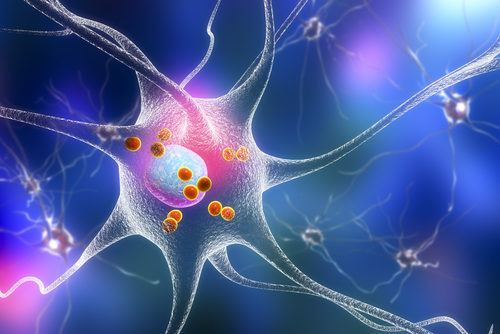This post was originally published on this site A recent collaborative study led by researchers at the University of Montreal Hospital Research Centre (CRCHUM) suggests that chronic kidney disease (CKD) could lead to diabetes. Findings from the study “Urea impairs β cell glycolysis and insulin secretion in chronic kidney disease,” were published in the Journal of Clinical Investigation.…
Author: Chris
MitoQ Antioxidant Lowers Oxidative Stress, Inflammation in Type 2 Diabetes Cells
This post was originally published on this site The antioxidant MitoQ was seen to lower oxidative stress and inflammation in white blood cells from patients with type 2 diabetes. Since these factors are known contributors to heart disease, the findings suggest that mitochondrial supplements may be beneficial in preventing heart problems in these patients. The…
Diabetes Much More Likely to Be Treated Than Obesity, Despite Link Between Two
This post was originally published on this site Healthcare clinicians prescribe 15 times more anti-diabetes medications than they do anti-obesity drugs, missing an important opportunity to control both diseases, researchers reported. Their article, “Low adoption of weight loss medications: A comparison of prescribing patterns of antiobesity pharmacotherapies and SGLT2s,” was published in the September issue…
Metformin Works Better for Some Diabetics Because of Gene Variant, Study Finds
This post was originally published on this site Investigators in an international research effort have found genetic evidence as to why the world’s most common treatment for type 2 diabetes, metformin, benefits some people more than others. Metformin has long been known to act differently on each patient, but the reasons for this largely confounded scientists. Researchers…
Alzheimer’s Animal Studies Examine Lack of ‘Cleaning’ in Brain Cells
This post was originally published on this site Boosting mitophagy — a natural process that clears neurons from damaged mitochondria (cells’ energy powerhouses) — decreased amyloid plaque formation and reversed cognitive deficits, namely memory impairments, across different animal models of Alzheimer’s disease (AD). “When the cleaning system does not work properly, there will be an…
Anti-epileptic Therapy Not Linked to Increased Dementia Risk, Study Reports
This post was originally published on this site Use of anti-epileptic therapy is not linked to an increased risk of dementia, according to the results of a real-world study with more than 100,000 patients followed in general and neuropsychiatrist practices in Germany. However, generic forms of the anti-epileptic medicine levetiracetam may potentially have a deleterious…
HIV Therapy May to Help Stop ‘Jumping Gene’ Linked to Inflammation Associated with Aging
This post was originally published on this site HIV therapies that block an enzyme that is essential for viruses to replicate, called reverse transcriptase, may offer a new way of treating age-related disorders like Alzheimer’s, a study suggests. The study, “L1 drives IFN in senescent cells and promotes age-associated inflammation,” was published in the journal…
Education Does not Improve Adaptability of Brain in Old Age, Study Suggests
This post was originally published on this site A higher level of education is not related to better cognitive reserve — the ability of the adult brain to maintain normal cognitive function in the presence of neurodegeneration — in old age, a study suggests. However, the study, titled “Education and cognitive reserve in old age,” did find that it allowed…
Brain Metabolism of Hibernating Hamsters May Reveal Novel Therapeutic Targets for Alzheimer’s Disease
This post was originally published on this site Upon hibernation, the brains of Syrian hamsters undergo metabolic changes that involve the phosphorylation of tau protein — a hallmark of Alzheimers’ disease. However, this process is rapidly reversed upon waking and understanding it could lead to the development of new therapies for Alzheimer’s, a study suggests. The…
Video Series Informs About the Possible Role of Germs in Alzheimer’s
This post was originally published on this site Addressing fundamental questions about the possibility that Alzheimer’s disease might be brought about by infections, Alzheimer’s Germ Quest has released a series of eight videos, each about one minute long. Alzheimer’s Germ Quest supports research into the prospective infectious quality of the disease the Alzheimer’s Association says affects…











